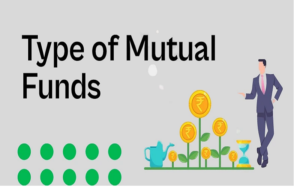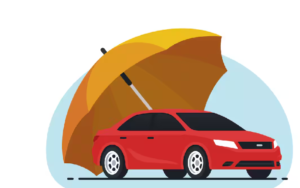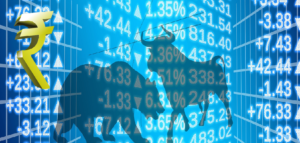Forex trading: How to become 90% poor in 5 minutes?
4 min read
Become rich by trading on Forex with our super sick techniques. It’s simple and accessible to everyone 24 hours a day from your living room”! Thanks to the many trading platforms that have been developed over the past few years, Mr. Everyman can now become a real trader “like in the movies” on the foreign exchange market (Forex), and earn a lot of money very simply… Hmmmm, it all smells like a scam, doesn’t it? Let’s start simple before developing: yes.
The foreign exchange market (or Forex for Foreign Exchange Market) is the market on which currencies, for example the euro or the dollar, are exchanged. Becoming a “trader” on the Forex therefore consists in “betting” or “speculating” for example on a rise in the euro against the dollar. If the euro appreciates (against the dollar), you win; if the euro depreciates (against the dollar) you lose. Simple isn’t it? The advantage of this market is that it is open 24 hours a day and that significant leverage effects can be used. Effects of what? A leverage effect allows you to multiply your gains during positive movements (for example if the euro goes from 1EUR = 1.25 USD to 1 EUR = 1.26 USD, instead of gaining $0.01, if you have a leverage of 10, you will earn $0.10.
But behind this apparent simplicity (it goes up I win, and with the leverage effect I win a lot), hides in reality one of the most complex markets to predict. In the short term, the foreign exchange market follows a random market (Meese & Rogoff, ” Empirical exchange rate models of the seventies: Do they fit out of sample?”), which means in less scientific terms “that it is impossible to predict the evolution of the price of a currency” or “that a random strategy brings the same results on average as an ultra-complex strategy , i.e. a nil abnormal return”. If you ever do not believe in this, ask yourself a few questions all the same: (1) if a winning strategy really existed, how can it persist over time knowing that everyone should use it which would remove the anomaly (market efficiency), (2) if a winning strategy existed, are you able to implement it faster or more accurately than a big bank with an army trader and automatic trading algorithm, and (3) whether a winning strategy existed,would a site offer you this strategy for 50 euros when it could earn millions by applying it on its own account?
It is important to understand that the forex market is a zero-sum game.
This means that when you bet on the rise of the euro against the dollar, then another person is betting on the opposite effect, ie a rise of the dollar against the euro. And as oddly the euro cannot fall and rise at the same time, well when there is a winner, there is a loser opposite. When you know that in addition you have to pay a commission and a spread (difference between the ask price and the offer price, the famous bid-ask spread), then Forex becomes a negative sum game. Be careful, as in all games, even with a negative sum, there will always be winners and losers. You will surely have the brother of your mother’s cousin who managed to win 5000 euros last month by betting on Forex. But behind your mother’s cousin’s brother, how many people have lost money on Forex? What is the average gain and loss in this market? How to manage the positive bias inherent in the fact that a winner will tell everyone about his beautiful story, while all the losers will be silent?
Forex is therefore like poker: a negative sum game. In poker, when you win money, another loses it, and the percentage of the casino’s commission (equivalent to the bid-ask spread + commission in finance) means that in total the sum of the winnings of the winners is less than the sum of the winnings of the losers. If you don’t know much about poker, are you going to sign up for a tournament with the best players in the world (army of bank traders) in front of you with access to “slightly” more efficient technology (trading algorithm)? your 56K modem? No ! Well in this case ditto, do not go on Forex.
“But Captain’, all that is theory, my trading tactic works too well!”. The AMF published in October 2014 a ” Study of the results of retail investors on CFD and Forex trading in France” based on a sample of 14,799 individual investors in CFD trading (derivative product allowing speculation on just about every market) and Forex in France for more than 4 years. And the AMF’s conclusion is clear: 9 investors out of 10 individuals are losers on these markets!Over 4 years, the average result is a loss of more than 10,000 euros per customer, and the median result a loss of 1843 euros.So yes, there were winners: 121 people out of 14799 won more than 24,000 euros; but in the other direction, 722 clients had a loss greater than 50,000 euros. The following graph, taken from the AMF report, shows the distribution of Profit & Loss (it clearly leans negative side…, and as explained previously with the cumulative frequency curve in red below,around 90% of investors are losers with a negative P&L).
amf-forex-risk
Another interesting result in the AMF study: the more transactions an investor carries out, the greater his loss! This is finally quite logical because of the transaction costs / commissions / bid-ask and confirms the conclusions of many academic studies on the overconfidence of individual investors (“ok it’s a negative sum game, but as I I’m better than the others, I’ll do it” – see the work of Barber & Odean for example) and on the negative relationship between turnover rate and portfolio return (read on this subject the excellent ” Trading Is Hazardous to Your Wealth: The Common Stock Investment Performance of Individual Investors ” by Barber & Odean again)






